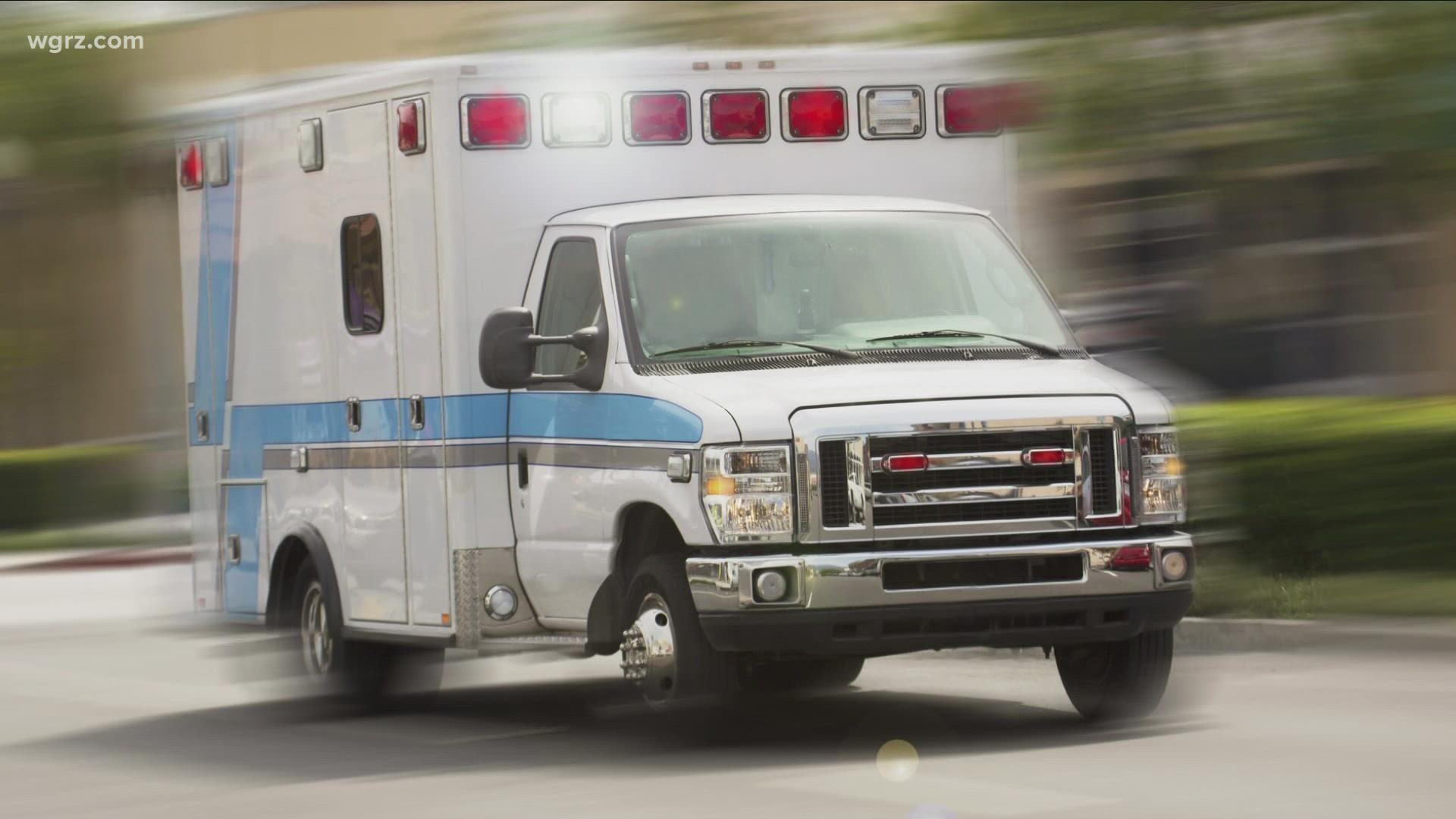NIAGARA COUNTY, N.Y. — Many rural communities are still in search of medical resources, as the fight against COVID-19 continues.
Earlier this month, Gov. Kathy Hochul announced more resources would be sent to Upstate New York to help support the medical community, including 30 additional national ambulance contract teams that were deployed on January 17.
Niagara County 's Director of Emergency Services, Jonathan Schultz, says he's very grateful to FEMA for helping them fill the void.
"We've been fortunate enough that we've had two paramedic ambulances here for about nine days now, helping us supplement across the county with much of these staffing shortages we're seeing due to COVID," Schultz says.
But given the need, the hope is the additional help can stick around longer, only time will tell.
"Right now, we have them scheduled through the next Monday. We are going to be working with New York State Department of Health to see if we can get that extended for another seven to 10 days, as we work through the pandemic," Schultz continues.
Over in Genesee County, the need for assistance isn't the exact same, but it's similar.
Tim Yaeger is the Director of Emergency Services. He tells 2 On Your Side that while they have not taken advantage of the FEMA ambulances yet, they are considering the help.
"We're maintaining ourselves," Yaeger says. "We could always have more ambulances in the system, but I wouldn't say that we're at a point of needing assistance."
The bottom line is since the start of the pandemic, medical and emergency services have been under pressure; lack of space, staff shortages, limited equipment, and as Omicron surged, those shortages only grew.
"Many of our rural areas they've been hit hard by COVID," Schultz expresses.
The busier the area, the likely one is to find access to care.
"If you're in a more populated area, you've got more ambulances available, and if you're more in a rural area, then there may be less available," Yaeger said.
That is why the need to recruit more medical providers remains a priority, but it hasn't been easy.
"It's not a great environment many days," Yaeger says. "I mean, they're regular people trying to help people and do the right thing. But it's not under great working conditions and they're vastly underpaid. Those are the things that need to be corrected."

